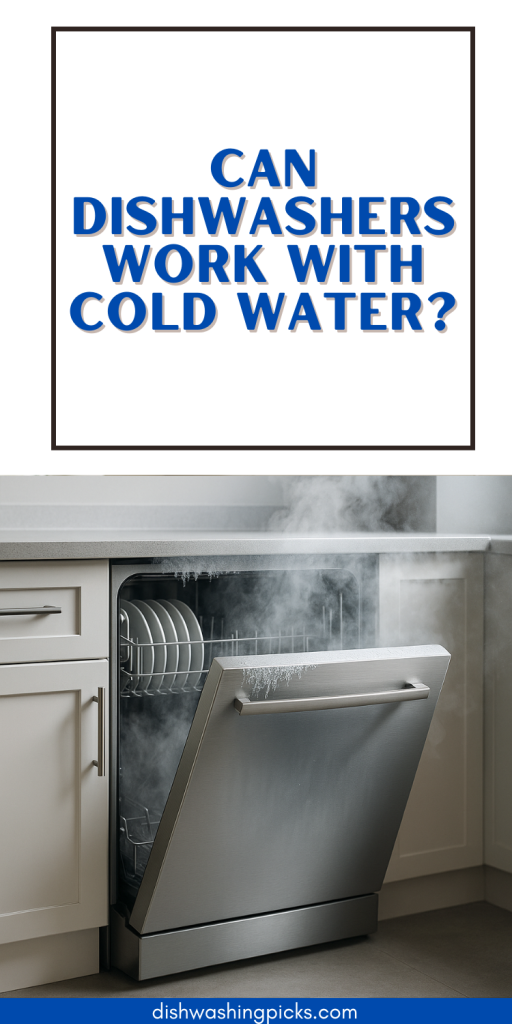
Let’s Clear the Suds First…
Okay, let’s set the scene: You’ve just moved into a new place, or maybe you’re redoing your kitchen plumbing. You stare at the back of your shiny dishwasher and wonder: “Does this thing really need hot water? Or can I just hook it up to cold?”
It’s a fair question. After all, we wash our hands with cold water sometimes, right? So what about dishes? Is a hot water hookup essential, or just a nice-to-have?
Let’s dive into this mystery—and don’t worry, we’ll keep the tech talk to a minimum.
How Dishwashers Actually Work (Spoiler: They’re Smarter Than You Think)
Here’s the deal: Most modern dishwashers aren’t just glorified water sprayers. They’re little cleaning ninjas packed with sensors, heaters, and clever programming.
Typically, a dishwasher is designed to connect to a hot water line, usually around 120°F (49°C). Why? Because starting with hot water makes the job quicker and more energy-efficient—less time and electricity spent heating it up inside.
BUT… drumroll, please… many dishwashers can technically run on cold water.
Yep. Technically.
But just because you can doesn’t mean you should. Let’s break it down.
So… What Happens If You Use Cold Water?
Picture this: You’ve got a dishwasher full of greasy lasagna pans and milk-crusted cereal bowls. You press ‘Start’… but the water going in is ice cold.
What happens?
- Longer wash times – Most dishwashers have internal heaters. If cold water comes in, they’ll heat it up themselves. But that takes time.
- Higher energy bills – Heating cold water using electricity takes more energy than just using hot water from your tank. You might be saving on plumbing complexity but paying for it later.
- Poorer cleaning performance – Especially in older or budget models, the internal heater may not get the water hot enough for heavy-duty messes. Say goodbye to sparkling plates.
- Stuck detergent – Some dishwasher pods and powders are designed to dissolve at higher temps. If the water’s too cold? You’re basically wasting soap.
So yes, your dishwasher might work with cold water, but it’s kind of like running a marathon in flip-flops. You’ll get there, but it’s not going to be pretty.
What About Energy-Efficient Dishwashers?
Ah, great question. If you’re thinking, “But wait—I just bought a super high-tech, energy-efficient dishwasher. Surely it can handle cold water, right?”… you’re partly right.
Some newer models are optimized to use less water and energy, and yes, they do come with powerful internal heaters. A few even prefer cold water hookups in specific regions or configurations.
But here’s the twist: these machines are still calibrated with certain assumptions, and usually, starting with warm or hot water helps them do their job faster and better.
So unless your manual specifically says cold water hookup is preferred (rare, but it happens!), the default recommendation is still: hot water in, clean dishes out.
What If You Only Have a Cold Water Line?
Alright, let’s say your kitchen is set up with just a cold water line. No hot water nearby. Should you freak out?
Nope. Here’s what you can do:
- Check your dishwasher model – Some can handle cold water just fine. The manual will tell you.
- Use high-temp settings – If your dishwasher has a “Sanitize” or “High Temp Wash” option, use it. This forces internal heating.
- Pre-rinse with hot water – If it’s a big meal mess, run the tap hot and rinse off gunk before loading.
- Install a small point-of-use water heater – Tiny under-sink units can deliver hot water directly to the dishwasher without major plumbing overhauls.
A bit of effort upfront, but it saves you frustration (and soap blobs) down the line.
Let’s Imagine This…
Picture a world where your dishes come out clean, your energy bills are low, and your dishwasher is humming happily with minimal fuss.
Sounds dreamy, right?
Now think about how easy it is to get there: just check your water source, consult your manual, and maybe invest in a mini-heater if needed. Done. No plumbing drama, no half-clean forks.
So, Should You Use Cold Water in a Dishwasher?
If we had to sum it all up in one line?
You can, but it’s not ideal.
Cold water = longer cycles, higher electricity use, possibly less-than-sparkling dishes.
Hot water = faster, cleaner, and more efficient—especially with stuck-on grime.
So unless your dishwasher is specifically made for cold water (and clearly says so in the manual), sticking with hot water is the smart move.
Final Thoughts: Don’t Let Cold Water Cool Your Vibe
At the end of the day, dishwashers are here to make life easier. Hooking them up right is half the battle won.
Still unsure about your setup? Pull out that dusty manual, or check the manufacturer’s website. And if you’re still stuck, drop me a question—I’ve got your back.
Now go forth and conquer those dirty dishes like a boss.
